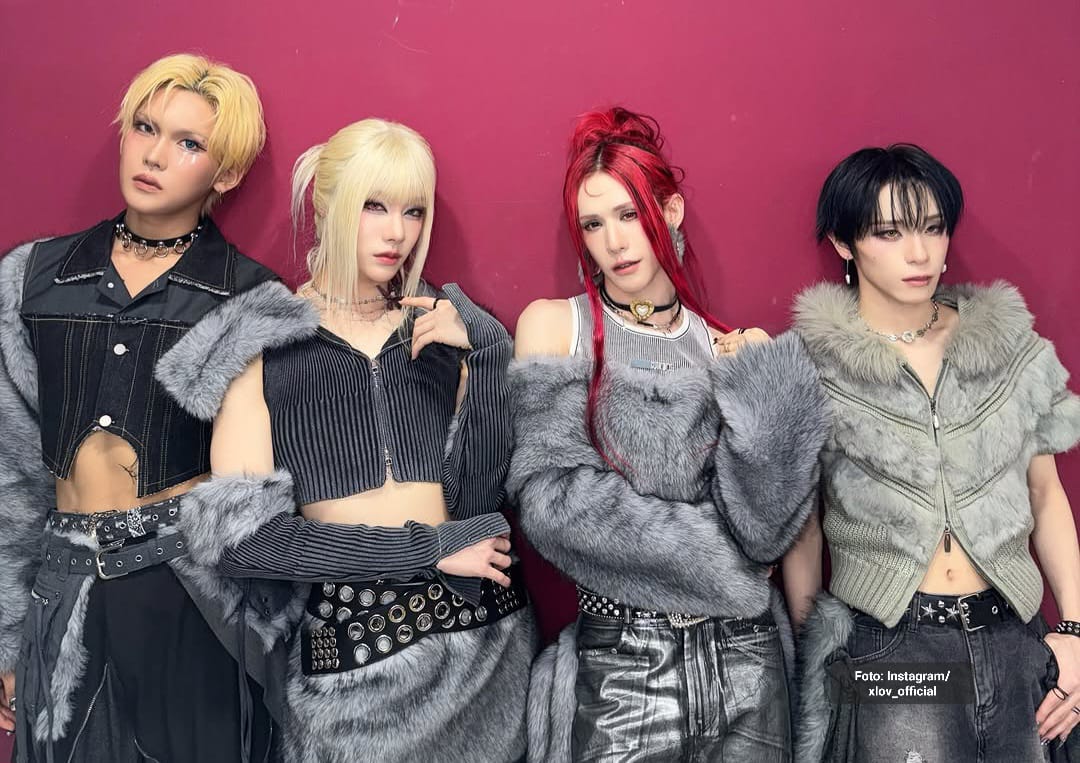What Indonesian Women Can Learn from the US Election

Unless you’ve been living under a rock for the past year, then one way or another you must have been exposed to the toxic climate of American election. I am, of course, referring to the Republican candidate Donald Trump, who has proven every day that there is no limit to the sordidness of a person’s character.
The one blessing in disguise that came out of his candidacy is that he has forced a nation to reflect on themselves how, in 2016, nearly half of the country (at least at some point this year) can be swayed by such a racially charged, misogynistic, hyperbole-laden and fascistically febrile campaign. It also has provided a much-needed opportunity to talk about “unpleasant” gender issues, like sexual assault and objectification of women, in mainstream politics.
Trump’s hot mic episode in which he was taped boasting about grabbing women without consent really shouldn’t have come as a surprise, if you had been following his previous comments denigrating women or reducing them to sexual objects. Since then, a slew of women has come forward to accuse of him of doing exactly what he bragged about: groping them, grabbing them by their genital, kissing them forcefully. In short, it was evidence of how rich and powerful men can pretty much do anything to women and get away with it.
One of the women who accused Trump of abuse was People magazine reporter Natasha Stoynoff, who described how he pushed her against a wall and tried to kiss her forcefully while she was reporting on a story about his wedding anniversary with current wife Melania. This accusation has been corroborated by at least six people, who recounted her being upset and telling them about the assault shortly after it happened many years back.
This reminded me of my own experience. About 15 years ago, I interviewed a senior legislator at his office at the Indonesian House of Representatives (DPR). With me was a male reporter with another media, a close friend of mine. After the interview, just as we were about to leave, we shook hands. Unexpectedly, the legislator held my hand a little longer than was appropriate, while intentionally caressing it. His other hand stroked my back in a way that I had never experienced with anyone other than someone I had intimate relationship with, while he told me I could call him anytime.
I couldn’t believe what was happening, and, in fact, I thought I was imagining it. After all, this guy was imprisoned for many years for leading an anti-government Islamic movement in the 1980s. Wasn’t he supposed to be a pious man? But as soon as we left his office, my journalist friend, said, “Oh, my God! I can’t believe he did that to you!”
So I wasn’t just imagining things. Now if he could do that to me when there was another person in the room, imagine what would happen if I had interviewed him by myself. In fact, years later I found out he did something similar to at least one other female journalist.
But, of course, who were we to do anything about it? There is no law in Indonesia on sexual harassment (hopefully not for much longer though). I was told later by a secretary of another legislator that sexual harassment was rife at her work place, and, in fact, it was one of the reasons that most women who work at DPR wore the hijab (which didn’t necessarily help either, she said).
There is a moral to this story: Don’t give more power to powerful sexual predators. Secondly: speak up when they assault you.
But there are also other lessons to learn from the Trump episode for those of us hoping to see more gender equity in Indonesian politics. And here they are:
- The force of patriarchy tends to lean right on a nation’s political spectrum, meaning the more conservative the politics is (and I’m not talking about fiscal conservatism, rather the social and religious kinds), the more powerful the agenda to keep things as they are, to keep women in check. The conservatives in the US want to control a woman’s body by outlawing abortion, cutting funding to programs like Planned Parenthood, which actually helps prevent teenage or unwanted pregnancy. The evangelical Christians support Trump, despite his dubious morality, fearing a Democratic president would elect a Supreme Court justice who will cement a woman’s right to choose. In Indonesia, the Islamic parties have been at the forefront of Sharia-inspired legislations, including nearly 400 regional bylaws, that exert control over the way a woman dresses or behaves as well as their mobility. Recently there has been a push to legislate individual’s sexuality, which could end up criminalizing many women.
- We seriously need a law on sexual crimes, which should cover not just rape or physical assault, but also sexual harassment, including by your boss, your colleague, your news source, people you sit next to at the airplane, or even those construction workers.
- Yes, we have a woman president before, which, in theory, should make us more advanced in gender equality than countries like the United States. But, in reality, president Megawati Sukarnoputri only replaced the late Abdurrahman Wahid, having been his vice president, after his impeachment in 2001. Her rise to power owed more to her pedigree as the daughter of founding president Soekarno, the political instability, and the anti-New Order sentiment at the time. And this was proven by her failure to win the subsequent elections in 2004 and 2009. In fact, with the rise of conservatism in Indonesia, a woman presidential candidate may face a substantial challenge today than she would, say, 16 or 12 years ago, shortly after the Reformasi, as hardline groups may question the religious legitimacy of a female president.
- People unfairly credit Hillary Clinton’s rise to her marriage to Bill, America’s 42nd president, ignoring the fact that she has been politically active for more than three decades, during which she accomplished incredible feats. Here’s the thing, we need to fill our political system with people like her. Because for every Sri Mulyani and Eva Kusuma Sundari in the government or legislature, there are those who occupy positions of power because of their family names (yes, Puan Maharani, I’m pointing my virtual finger at you). Just take a look at the wives of former governors or daughters of political clans who are contesting the regional elections across Indonesia. Another factor is the rise of celebrity politicians. These are former actresses, singers, models or TV personalities who capitalize on their looks or their popularity to enter politics and contribute little once they’re elected. It isn’t really their fault as it is the fault of the political parties that exploit their electability to win seats in Parliament, or to merely meet the 30 percent quota of women candidates in the Legislative Election without investing in proper recruitment and development of women in their organizations.
- Knowledge is power, half knowledge is dangerous, ignorance gives you Hitler (or Donald Trump). You’d think a superpower like the U.S. would have more informed voters – apparently not. While there are more information and commentary on politics these days, thanks to the internet, a recent survey has shown that civic knowledge among Americans are shaky at best. The study, released by the Annenberg Public Policy Center at the University of Pennsylvania, showed that one in three native-born Americans would fail the civics portion of the naturalization test for immigrants (ironically, 97 percent of those applying for citizenship – the archenemies in Trump’s America – pass the test). Could this be a factor that helped Trump’s rise to power? Possibly. Former US Supreme Court Justice David Souter gave an eerily prescient warning during a 2012 talk about the lack of civic knowledge. He loosely quoted Thomas Jefferon: “An ignorant people can never remain a free people; democracy cannot survive too much ignorance.” When combined with rampant misinformation, disinformation and conspiracy theorizing of the right-wing media that fan the flame of racial resentment and xenophobia, it can lead to devastating results. Indonesians are no strangers to this, too. In the 2014 presidential election, we saw the proliferation of print and online publications that churned out negative stories and outright lies about presidential candidate Joko Widodo. The disinformation mill has gone into overdrive again this year ahead of the 2017 Jakarta Gubernatorial Election, targeting incumbent Basuki Tjahaja Purnama (Ahok), who is a Christian and an ethnic Chinese. Long before the dawn of the digital era Mark Twain has been quoted as saying this: “A lie can travel halfway around the world while truth is putting on its shoes.”
How unfortunate it is that the trailblazing moment of a highly qualified woman who has gotten this far in the American politics has been largely overshadowed by all the controversies surrounding her undeserving opponent, a blustering, bumbling, narcissistic man-child with wandering hands and a schoolyard bully’s mouth. But even if Clinton seems to be winning now, the election has exposed a dark side of democracy and populist politics: that election is about the manipulation of the mass.
So, fellow Indonesian women (or should I say “nasty” women of Indonesia), look out for candidates who belittle women, whose agenda involves chipping away at women’s rights, and who receive the support of groups or parties that have done nothing to advance the empowerment of women. That is the least we could do to prevent the rise of an Indonesian-style Trump.
Devi is currently residing in Washington, DC, where she is attempting her first novel. Follow @dasmaran on Twitter.






















